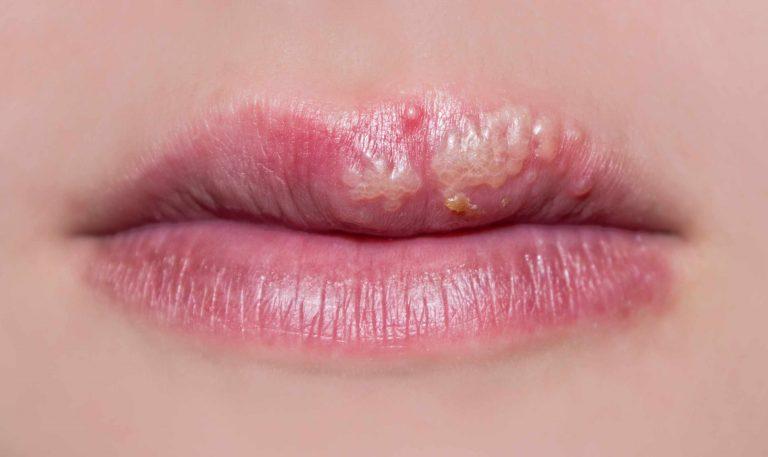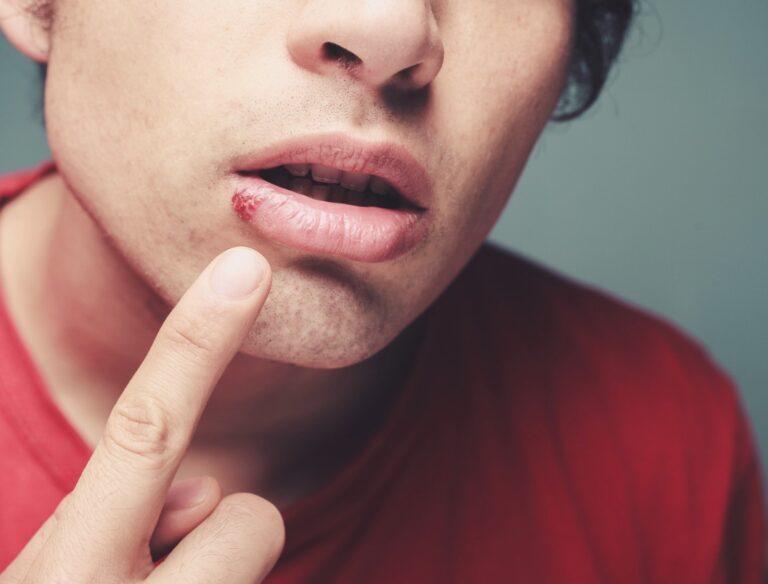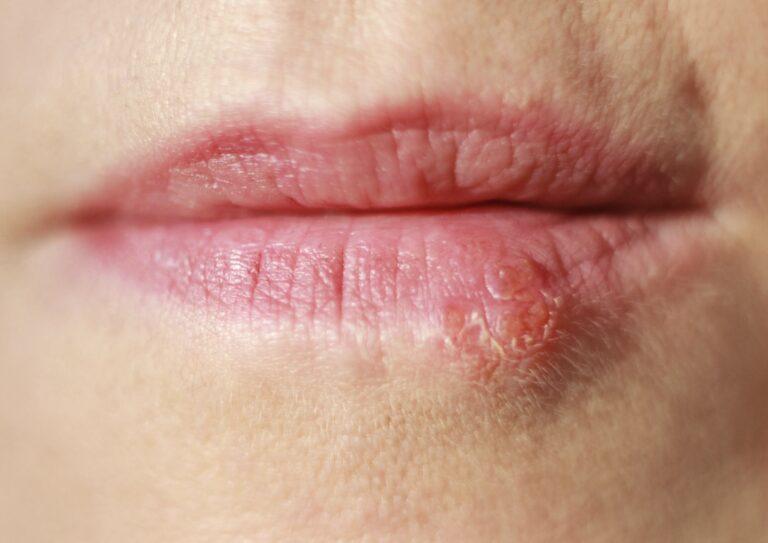
Cold sores, sometimes called fever blisters, happen in stages and understanding what these are can help you.
Knowing what the early stages of a cold sore are will let you recognize that something is on the way, and the faster you act, the faster you can clear them up. Understanding the later stages of a cold sore helps you gauge where you are in the process and lets you know roughly how long you have left until it’s gone.
So, let’s look at the stages of a cold sore.
What is a cold sore and what causes them?
Cold sores are small blisters and sores that usually form around the mouth, but also on the chin, cheeks, inside the nose, and inside the mouth.
They are usually caused by an infection of the herpes simplex virus 1 (HSV-1), but sometimes also by the herpes simplex virus 2 (HSV-2), which more often causes genital herpes. You usually catch these viruses through body contact. They get into you through openings, like through your mouth or through cuts in your skin. The virus then spreads through your skin cells, causing the blisters and sores to form.
Once the virus is in you, unfortunately it’s there for life. Most of the time it lies dormant and you have no symptoms, but every now and then it reactivates, and you get another outbreak of blisters and sometimes other symptoms too.
How long does it take for a cold sore to go away?
Cold sores usually last between eight to 10 days. They can last up to two weeks however, and sometimes longer. This is often the case if it’s your first outbreak, as the first is usually the worst. If you treat cold sores with prescription medications like valacyclovir and Valtrex, you can usually clear them up, and sometimes you can even stop an outbreak from happening.
How long is a cold sore contagious for?
So, when are cold sores contagious? When you have cold sores, you can have the live virus on your face, and you can pass it on to other people through body contact. Your cold sores are contagious from the moment you feel the first symptoms, usually a tingling in the skin, until the cold sores have gone, and your skin has completely healed.
What can trigger a cold sore?
When you’ve contracted a herpes virus it stays with you for life, and you get periodic outbreaks of cold sores. These outbreaks can be triggered by anything which lowers your immune system, like illness, stress, and fatigue, but they can also be triggered by the weather, and possibly even by food. You might find you have unique personal triggers for cold sore outbreaks too.
How do I heal a cold sore?
Cold sores will heal naturally, but you can speed up the healing process by using over the counter cold sore treatments that contain acyclovir, or better yet, by using prescription cold sore drugs like valacyclovir and Valtrex. You can also use ice to numb any pain, or take pain killers, and whilst these won’t help you heal any faster, they can help you manage the symptoms of cold sores.
The 5 stages of a cold sore
Cold sores usually pass through five stages over the course of 8 to 10 days. Everyone is different though and your symptoms and the time they occur may vary from those described below.
Cold sore stage 1: the first symptoms
One to two days before the cold sores appear, most people feel a tingling on the skin where they’re about to erupt. You can also feel soreness, itching, and tightness of the skin. At this point the virus has reactivated and is multiplying through your skin cells.
Cold sore stage 2: the cold sores emerge
Usually around two to four days into an outbreak, the cold sores begin to make an appearance. They typically look like small red lumps with a tip filled with clear fluid, and they can be itchy or even sore. Your body is beginning to fight the virus at this stage.
Cold sore stage 3: the cold sores burst
After four to five days the cold sores can rupture and leak the fluid that they contain onto your face. The fluid can dry creating a crust, which can be very tempting to pick off. But you should try and resist, as the fluid can contain the live herpes virus, and if you get it on your fingers you can transfer it to other people and other parts of your body.
Cold sore stage 4: the cold sores scab over
By around five to eight days, the ruptured and open cold sores scab over. They can be even more tempting to pick at, as they can be dry and itchy, or even sore. You shouldn’t though, as this is part of the healing process, and you’ll delay it if you pull the scabs off.
Cold sore stage 5: the cold sores clear up
After typically about eight to 10 days, the skin beneath the cold sores is healing, and the scabs begin to fall off. The skin can be a little pink or red for a few more days as it continues to heal.
How to treat cold sores
You can buy a range of products to treat cold sores, including over the counter creams and gels which contain acyclovir, an antiviral which can stop the spread of herpes. However, prescription medications taken in pill form, such as valacyclovir and Valtrex , are usually considered to be more effective. They also contain an antiviral which fights the herpes virus, and they can help your body clear an outbreak up faster. They can be taken daily at a lower dose to stop outbreaks from happening.
As well as antiviral medications, you can also use ice or painkillers to reduce any pain or irritation around the cold sores. These won’t help your body clear the cold sores up any faster, but they can help to ease symptoms alongside antiviral medications.
Remember, knowing the stages cold sores go through can help you understand how long you’re likely to have them, and can help you treat them.
Sources
Medical Disclaimer
NowPatient has taken all reasonable steps to ensure that all material is factually accurate, complete, and current. However, the knowledge and experience of a qualified healthcare professional should always be sought after instead of using the information on this page. Before taking any drug, you should always speak to your doctor or another qualified healthcare provider.
The information provided here about medications is subject to change and is not meant to include all uses, precautions, warnings, directions, drug interactions, allergic reactions, or negative effects. The absence of warnings or other information for a particular medication does not imply that the medication or medication combination is appropriate for all patients or for all possible purposes.








